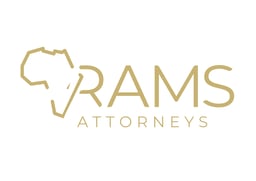
South Africa


Araoz & Rueda

Ashurst

Ashurst LLP

Augusta Abogados

Baker McKenzie Johannesburg

Bowmans

Cliffe Dekker Hofmeyr

Cox Yeats

Cuatrecasas

Dentons

DLA Piper

Herbert Smith Freehills Kramer LLP

Hogan Lovells (South Africa)

Norton Rose Fulbright South Africa Inc

RAMS Attorneys

Spoor & Fisher

Webber Wentzel

Werksmans Attorneys

White & Case LLP
News & Developments
ViewPress Releases
Adams & Adams awarded Africa Firm of the Year by Managing IP
14 April 2025 - Adams & Adams has been recognised as Africa Firm of the Year at the annual Managing Intellectual Property (IP) Awards for Europe, the Middle East and Africa (EMEA), which took place on 10 April at the Royal Lancaster Hotel in London. The firm also received the distinction of South Africa Patent Firm of the Year, with Senior Associate Lisa van Zuydam named South Africa Rising Star of the Year for her growing impact on the IP field.
“To be awarded South Africa’s top patent firm and Africa’s leading IP firm is a powerful endorsement of our continued leadership in the IP landscape. This prestigious award underscores our unwavering commitment to service excellence and innovation, reflecting the core values that drive Adams & Adams forward. Congratulations to Lisa on her achievement, which speaks volumes about the exceptional IP talent at Adams & Adams,” says Kelly Thompson, Chairperson at Adams & Adams.
Now in its 20th year, the Managing IP Awards programme is the most comprehensive and widely respected IP law firm awards event in the legal industry. Recipients are selected through a rigorous research methodology based on comprehensive submissions, peer review and independent research.
As Africa Firm of the Year for 2025, Adams & Adams demonstrated its expertise in handling challenging IP cases. The recognition as South Africa Patent Firm of the Year highlights the firm’s outstanding results in patent services in the region.
The success of Adams & Adams at the 2025 Managing IP Awards builds on a series of accolades recognising the firm’s expertise in IP. In the latest Chambers Global rankings, the firm’s IP team once again secured a prestigious Band 1 ranking. Several of our IP attorneys were also recognised by The Legal 500 as leading IP attorneys this year. In the WTR1000 2025, which rates the world’s top trade mark lawyers, 21 of the firm’s attorneys were recognised and the firm again earned a Gold ranking, re-affirming its leading position in South African IP law
“These prestigious achievements across our firm’s practice areas strengthen our reputation in a highly competitive market. As a trusted partner to our clients, we offer strategic solutions to help them navigate the complexities of the legal field and realise their potential on the African continent,” concludes Thompson.
Adams & Adams - May 9 2025
WAS THE DECISION BY THE NPA TO REMOVE COUNTERFEIT GOODS MATTERS FROM THE COMMERCIAL CRIMES COURT IN LINE WITH THE RIGHT OF ACCESS TO JUSTICE AS SET OUT IN SECTION 34 OF THE CONSTITUTION?
South Africa is a constitutional democracy, which means that it is a country which observes human rights principles and is governed by the rule of law.All decisions taken by State organs must promote, and not frustrate, constitutional principles.
In 2018, the then President of the Republic of South Africa established a commission of enquiry into allegations of State Capture, Fraud and Corruption. From the work of this commission, it was envisaged that several commercial crime matters would find their way to the commercial crimes court. In 2019, the NPA elected to remove all criminal matters emanating from the seizure of counterfeit goods from the commercial crimes court roll. The main rationale behind this decision was to free the commercial crimes court roll in preparation for the criminal matters that would flow from the work of the commission. It was accepted by brand holders and their legal representatives that the NPA would ensure that the required training and transfer of knowledge would take place to ensure that the Regional Court Prosecutors were sufficiently equipped to deal with Intellectual Property Crimes. However, it is clear that this never happened.
The Complainants in counterfeit goods criminal matters are often companies that own registered trade marks. These companies are entitled to enjoy various applicable rights in the bill of rights (chapter 2 of the constitution), including the right of access to justice. In this regard, Section 8(4) of the Constitution provides: “A juristic person is entitled to the rights in the Bill of Rights to the extent required by the nature of the rights and the nature of that juristic person”. It is settled legal principle that a juristic person is an entity with a separate legal personality and with a capacity to hold rights and responsibilities. Companies have separate legal personality and have a capacity to hold rights and responsibilities. Therefore, they qualify as juristic persons.
Companies, as juristic persons, are entitled to applicable rights in the bill of rights, including the right of access to justice. Section 34 of the Constitution provides that “everyone has the right to have any dispute that can be resolved by the application of law decided in a fair public hearing before a court or, where appropriate, another independent and impartial tribunal or forum.”
The Human Rights Commission, in its pamphlet of 15 April 2024, dealing with the promotion of access to justice, stated that the right of access to justice involves bringing a matter before a relevant court and for the matter to be adjudicated fully, with fairness and expeditiously. In the context of criminal matters, this means that the Prosecutors on behalf of the State must be able to prosecute competently and expeditiously. The same principle applies with equal force to presiding officers when they adjudicate on criminal matters.
In the case of Social Justice Coalition and Others v Minister of Police and Others [2022] ZACC 27, the Constitutional Court grappled with the question of whether it has the power to grant declaratory relief in incomplete proceedings before another court where there has been an unreasonable delay in finalising proceedings on the basis that this is in conflict with Section 34 of the Constitution. The Court held that “The right to access to court is more than simply the right to approach a court and initiate a case in support of a justiciable dispute. The object of going to court is to secure a decision on a dispute and the language of section 34 expressly extends to the right to have a dispute decided. Similarly, the process by which a decision is reached is also covered by the right in its reference to a ‘fair hearing’. Put differently, section 34 is a right that guarantees access to court to have a dispute decided in a fair public hearing.”
The court further held that “It must follow that, if section 34 is to have its proper effect it must be interpreted as both encompassing a right to bring a dispute to court, a right to have it litigated to finality and a right to have it decided. All the components of the litigation process are meant to flow seamlessly into each other, and they all collectively give expression to the right of access to court. No single component is more important than the other.” Finally, on this score, the court held that an unreasonable delay on the adjudication of a matter may well, in certain situations, result in an infringement of the right of access to a court.
The general feeling has been that criminal cases pursued under the Counterfeit Goods Act were finalised more expeditiously in dedicated Commercial Crimes Courts. It would be unfair to place the blame for such delays only at the feet of the Court Prosecutors themselves. With limited recourses, the Regional and District Court Prosecutors are already inundated with “conventional” criminal cases assigned to them. Prosecuting offences under the Counterfeit Goods Act involves aspects and knowledge of various pieces of legislation including the Trade Marks Act, The Copyright Act, and, in some instances, the Customs and Excise Act.
From the above, it is clear that proper training by the Commercial Crime branches to Regional and District court prosecutors should have formed part of the process in transferring the mandate to prosecute these matters. There is no indication that this will happen soon.
A recent News Article published by The Citizen News on 26 October 2024, revealed that the South African Police seized more than 6000 counterfeit items, valued over R3 million, in Johannesburg CBD (Police seize counterfeit goods worth millions in Joburg CBD).
The Constitutional Court in the abovementioned case has made it abundantly clear that unreasonable delay in the adjudication of matters, in appropriate circumstances, may constitute an infringement of a litigant’s (in this case a Complainant’s) right of access to justice in terms of section 34 of the Constitution. Even though criminal matters are between the State and the Accused persons, Complainants generally have a legal and a vested interest in the cases. It can be further argued that this legal and vested interest is more pronounced in counterfeit goods matters because the Complainants/trade mark proprietors incur storage costs of seized counterfeit goods until such time that the criminal matters are finalised, as required by the Act.
Whilst brand holders are battling to fight the unending influx of counterfeit goods in the South African market, the above arguments raise real concerns and thoughts on whether the prosecution process serves and protects the interest of brand holders in the best possible way.
Adams & Adams - November 19 2024

